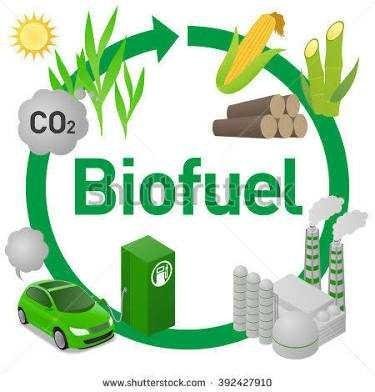As the term suggests, bio-fuels are fuels that are formed when biological matter decomposes. The bio-fuels are mostly derived from plants. Bio-fuels exist in all the three states of matter: solid, liquid, and gas.
DIFFERENCE BETWEEN BIO-FUELS AND FOSSIL FUELS.
Bio-fuels are different from fossil fuels in the following ways:
Fossil fuels take a million years to build whereas bio-fuels can be made extremely fast, in a matter of days.
Fossil fuels generate huge amounts of pollution. Bio-fuels are comparatively safer.
Bio-fuels are renewable sources of energy unlike fossil fuels.
DIFFERENT TYPES OF BIO-FUELS.
Bio-fuels have been categorized into four types: first generation, second generation, third generation, and fourth generation.
- The first generation bio-fuels are derived from vegetable fats, starch, and sugar, which are in turn derived from food-crops. The first generation fuels are also derived from animal fats. Biogas, bio-diesel, and vegetable oil are some examples of this type of bio-fuels.
- The second generation of bio-fuels is mainly derived from waste biomass, thus making it a more balanced option compared to the first generation bio-fuels. Different kinds of alcohols and diesel generated from wood fall into the category of second generation bio-fuels.
- The third generation comprises of bio-fuels derived from algae. Algae are farmed on large scales for creating these bio-fuels. The algae fuels are extremely environment-friendly as they can easily decompose into the soil without harming it.
- The bio-fuels in the fourth generation are derived by a method in which micro-organisms are raised to work with carbon dioxide to generate fuel.
ADVANTAGES OF BIO-FUELS
Bio-fuels prove advantageous in the following ways:
- Bio-fuels lesson the burden on gradually vanishing fossil fuels.
- Bio-fuels are environment-friendly. They help reduce carbon emissions into the atmosphere.
- Bio-fuels, especially, bio- diesel prove to be very cost-effective for consumers.
DISADVANTAGES OF BIO-FUELS
Bio-fuels are not bereft of criticism. Though beneficial the environment, bio-fuels have its disadvantages, paradoxically in to environmental purview. Bio-fuels have received criticism for many reasons, a couple of which are stated below:
Economists have long debated on the usefulness of first generation bio-fuels when compared to the lack of food they cause. Generating fuel from food crops makes food crops unworthy of human consumption. Some people believe that being a higher priority than fuel; food should not be farmed for making fuels but for human consumption.
Making bio-fuels require acres of farming land, thus encroaching upon the natural habitat of plants and animals.

I feel like I read this article somewhere else. Deja Vu!
Downvoting a post can decrease pending rewards and make it less visible. Common reasons:
Submit
Hi! I am a robot. I just upvoted you! I found similar content that readers might be interested in:
http://www.idc-online.com/technical_references/pdfs/civil_engineering/The_Advantages_Of_Bio_Fuel.pdf
Downvoting a post can decrease pending rewards and make it less visible. Common reasons:
Submit
Congratulations! This post has been upvoted from the communal account, @minnowsupport, by temmytimmy from the Minnow Support Project. It's a witness project run by aggroed, ausbitbank, teamsteem, theprophet0, someguy123, neoxian, followbtcnews, and netuoso. The goal is to help Steemit grow by supporting Minnows. Please find us at the Peace, Abundance, and Liberty Network (PALnet) Discord Channel. It's a completely public and open space to all members of the Steemit community who voluntarily choose to be there.
If you would like to delegate to the Minnow Support Project you can do so by clicking on the following links: 50SP, 100SP, 250SP, 500SP, 1000SP, 5000SP.
Be sure to leave at least 50SP undelegated on your account.
Downvoting a post can decrease pending rewards and make it less visible. Common reasons:
Submit